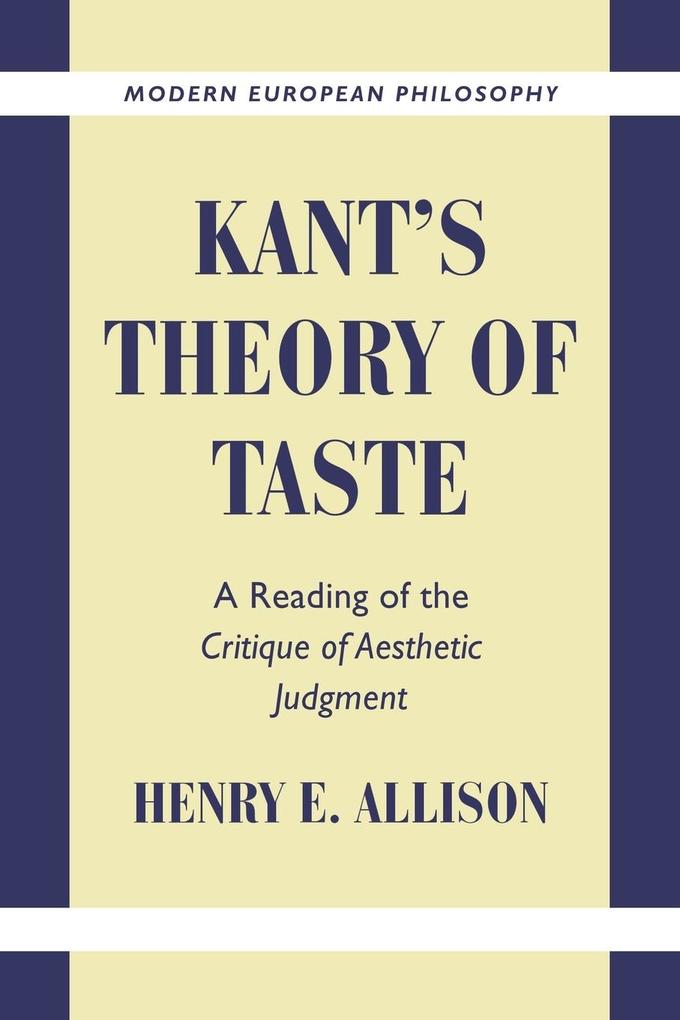An important study of Kant's aesthetics, from a leading Kant scholar.
Inhaltsverzeichnis
Acknowledgments; Note on sources and key to abbreviations and translations; Introduction; Part I. Kant's Conception of Reflective Judgment: 1. Reflective judgment and the purposiveness of nature; 2. Reflection and taste in the introductions; Part II. Te Quid Facti and the Quid Juris in the Domain of Taste: 3. The analytic of the beautiful and the quid facti: an overview; 4. The disinterestedness of the pure judgment of taste; 5. Subjective universality, the universal voice, and the harmony of the faculties; 6. Beauty, purposiveness, and form; 7. The modality of taste and the sensus communis; 8. The deduction of pure judgments of taste; Part III. The Moral and Systematic Significance of Taste: 9. Reflective judgment and the transition from nature to freedom; 10. Beauty, duty, and interest: the moral significance of natural beauty; 11. The antinomy of taste and beauty as a symbol of morality; Part IV. Parerga to the Theory of Taste: 12. Fine art and genius; 13. The sublime; Notes; Bibliography; Index.
